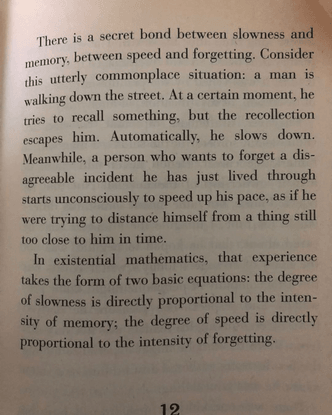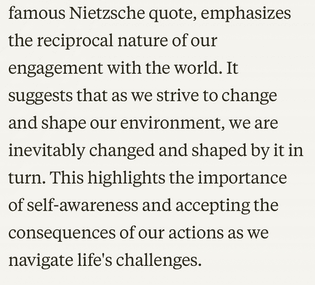“That’s the main thing. As long as you’re wanting to be thinner, smarter, more enlightened, less uptight, or whatever it might be, somehow you’re always going to be approaching your problem with the very same logic that created it to begin with: you’re not good enough. That’s why the habitual pattern never unwinds itself when you’re trying to improve, because you go about it in exactly the same habitual style that caused all the pain to start. There’s a life-affirming teaching in Buddhism, which is that Buddha, which means “awake,” is not someone you worship. Buddha is not someone you aspire to; Buddha is not somebody who was born more than two thousand years ago and was smarter than you’ll ever be. Buddha is our inherent nature— our buddha nature—and what that means is that if you’re going to grow up fully, the way that it happens is that you begin to connect with the intelligence that you already have. It’s not like some intelligence that’s going to be transplanted into you. If you’re going to be fully mature, you will no longer be imprisoned in the childhood feeling that you always need to protect yourself or shield yourself because things are too harsh. If you’re going to be a grown-up—which I would define as being completely at home in your world no matter how difficult the situation—it’s be- cause you will allow something that’s already in you to be nurtured. You allow it to grow, you allow it to come out, instead of all the time shielding it and protecting it and keeping it buried.”


